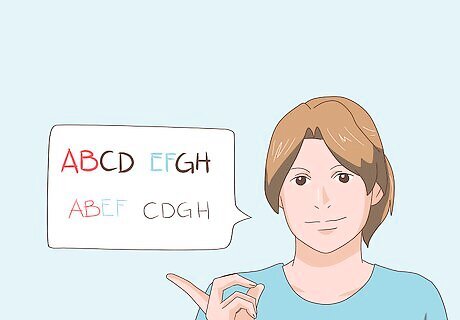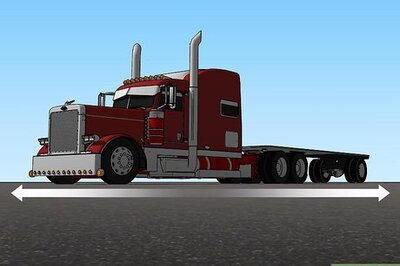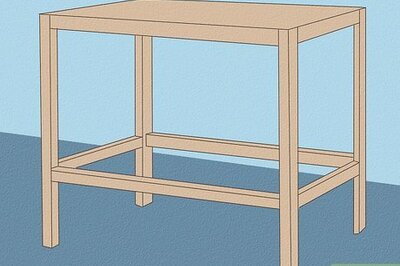
views
A couple things you need to know before you get started:
There is no single "Jersey" accent -- there's a typical North Jersey accent (listen to actor Joe Pesci for a good example), a typical South Jersey accent (which is very similar to, but more southern-sounding than, the Philadelphia, PA accent), and a whole range of accents between the two.
Absolutely nobody in any part of New Jersey says "Joisey". That is a totally false stereotype. The 'R' tends to be very hard in south Jersey and less so in the north (where "fork" sounds more like "fawk"), but it never sounds like "Joisey".[1]
X
Research source

Watch some videos and movies where New Jersey accents are available. If it's a "South Jersey" accent you're after, good luck finding a genuine one in a movie!

General - South Jersey Accent. There is a slight Southern "twang" to the accent in most of southern NJ, which is probably difficult to mimic well without overdoing it. There are also inexplicable pockets of strong southern accents mixed with the regular South Jersey accent in virtually every southern county of NJ.

Consonants 'D' at the end of the word stops when the tongue hits the palate, although it has become fashionable among some younger people (<30) to emphasize the final 'D' and append a quiet "uh" for emphasis, so that, for example, "I did!" sounds a lot like "I did-uh!" The 'R' is hard. Think of saying the pirate "Arrrr!" Make the 'R' that hard, but don't elongate it. 'T' at the end of the word also stops when the tongue hits the palate. In northern NJ, there may be a slight hiss after the ending 'T' so that "it" sounds almost like "its", but not in the south. As with the final 'D', younger people also sometimes stress the final 'T' and append a quiet "uh" for emphasis, e.g., "I did it-uh!".

Vowels Long vowels tend to be elongated a bit, similar to a Southern accent, or what most Americans would think a stereotypical English accent sounds like. Short vowels are unremarkable, except for 'A'. Long 'A': Think 'eh-ee' smoothly blended together; somewhat English-sounding. Short 'A': Before 'M', 'N' or 'S', usually sounds something like "aya", so that the noun "can" (as in "tin can") sounds something like "cayan" and "fast" sounds like "fayast"; however, if you're saying "I can," the 'A' is much shorter and flatter ("I kan"), while "can't" reverts back to "cayan't". When preceding other consonants, the short 'A' is usually short and flat (map, cat, etc.). Long 'E': Unremarkable. Long 'I': Think "ah-ee" smoothly blended together (often very English-sounding). Long 'O': Think of a stereotypical English 'O' -- the mouth starts in a more open "eh" position and sort of closes to an "oo" sound at the end. Long 'U': Unremarkable.

Specific Words. 'Water' is usually pronounced something like "wooder" (wood'-er) or "wudder". Saying "wooder" or "wudder" will definitely make you sound South Jersey. 'Log', 'fog', 'hog', 'bog', etc. are most commonly pronounced like 'dog' (e.g., 'lawg'). About 50% of South Jerseyans pronounce 'roof' and 'hoof' with the same vowel sound as 'put', and many give 'root' the same pronunciation. The other 50% will say those same words -- except for "hoof" -- with the same vowel sound as "moo". 'Push' and 'pull' occasionally sound more like 'poosh' and 'pool', but this pronunciation is dying out and is rarely heard in people born after the 1950s.

Expressions. "Pert'near" has almost disappeared, but it's still heard from time to time and means "pretty near," i.e., nearly or almost. "I pert'near fell when I slipped on the ice!" A funny one is "Jeet?" which is easily understood by everyone in the greater Delaware Valley area, but can confuse people from the West Coast. It means, of course, "Did you eat?"




















Comments
0 comment